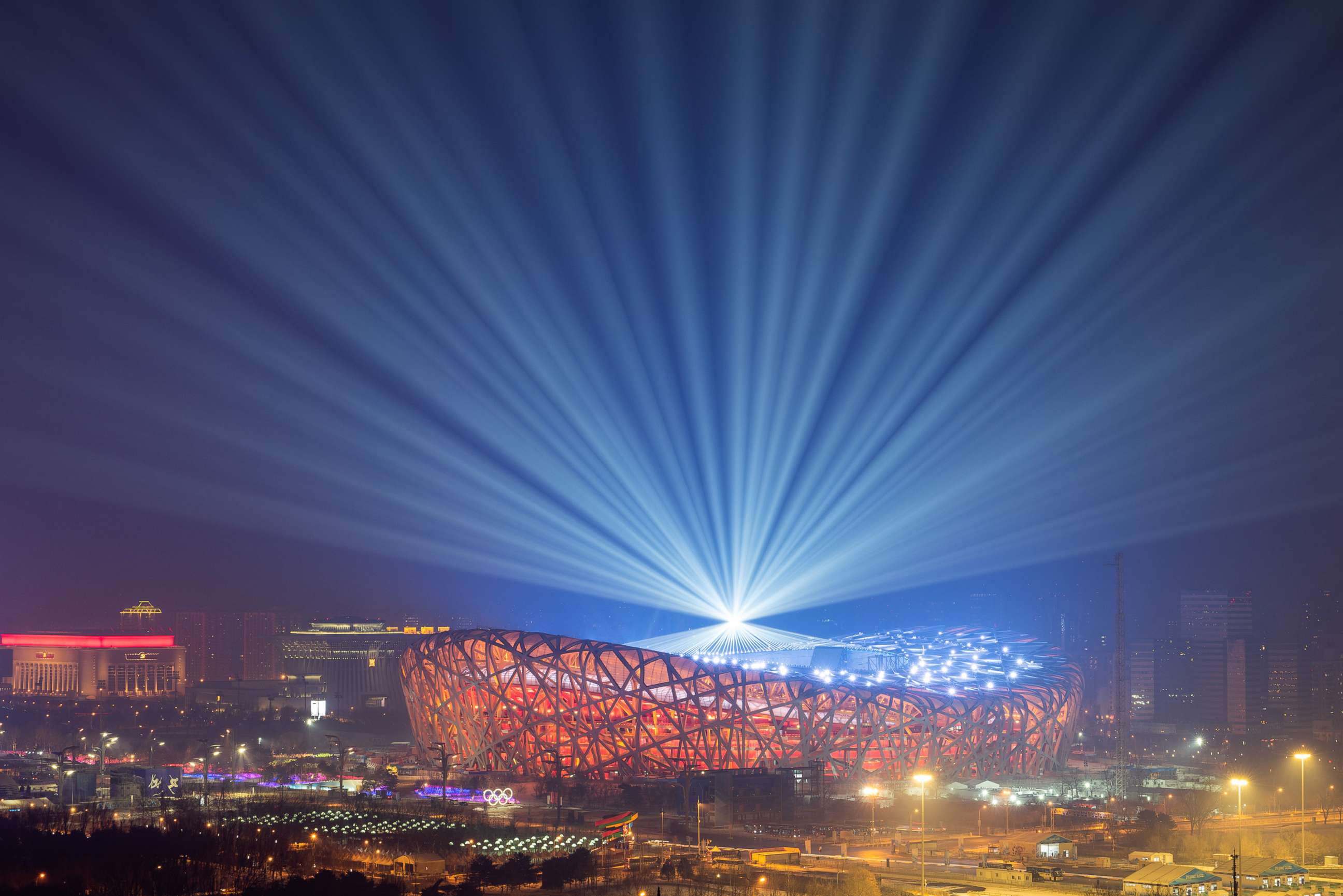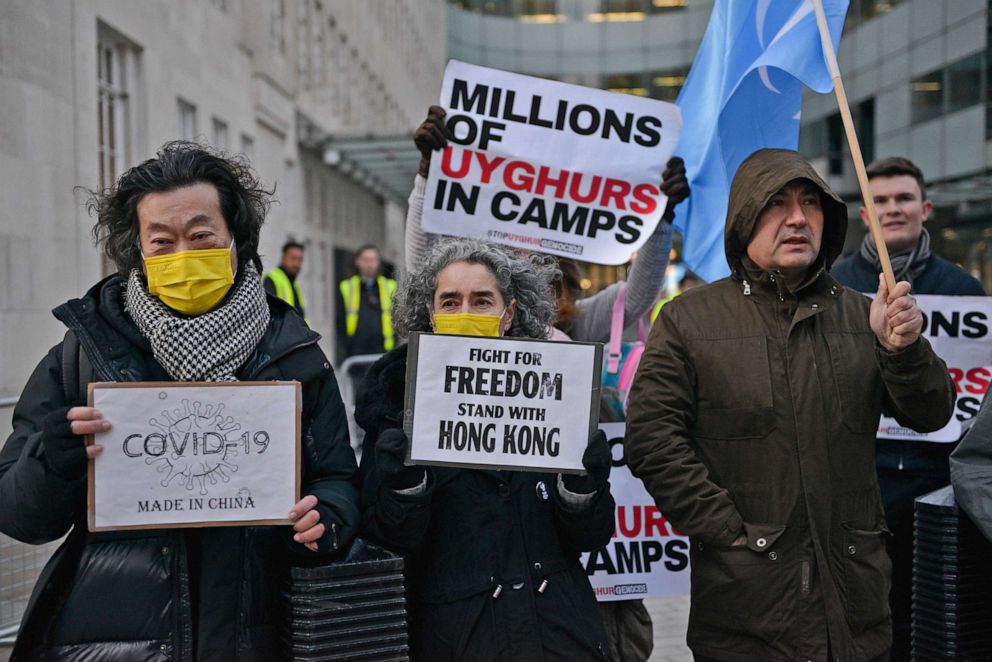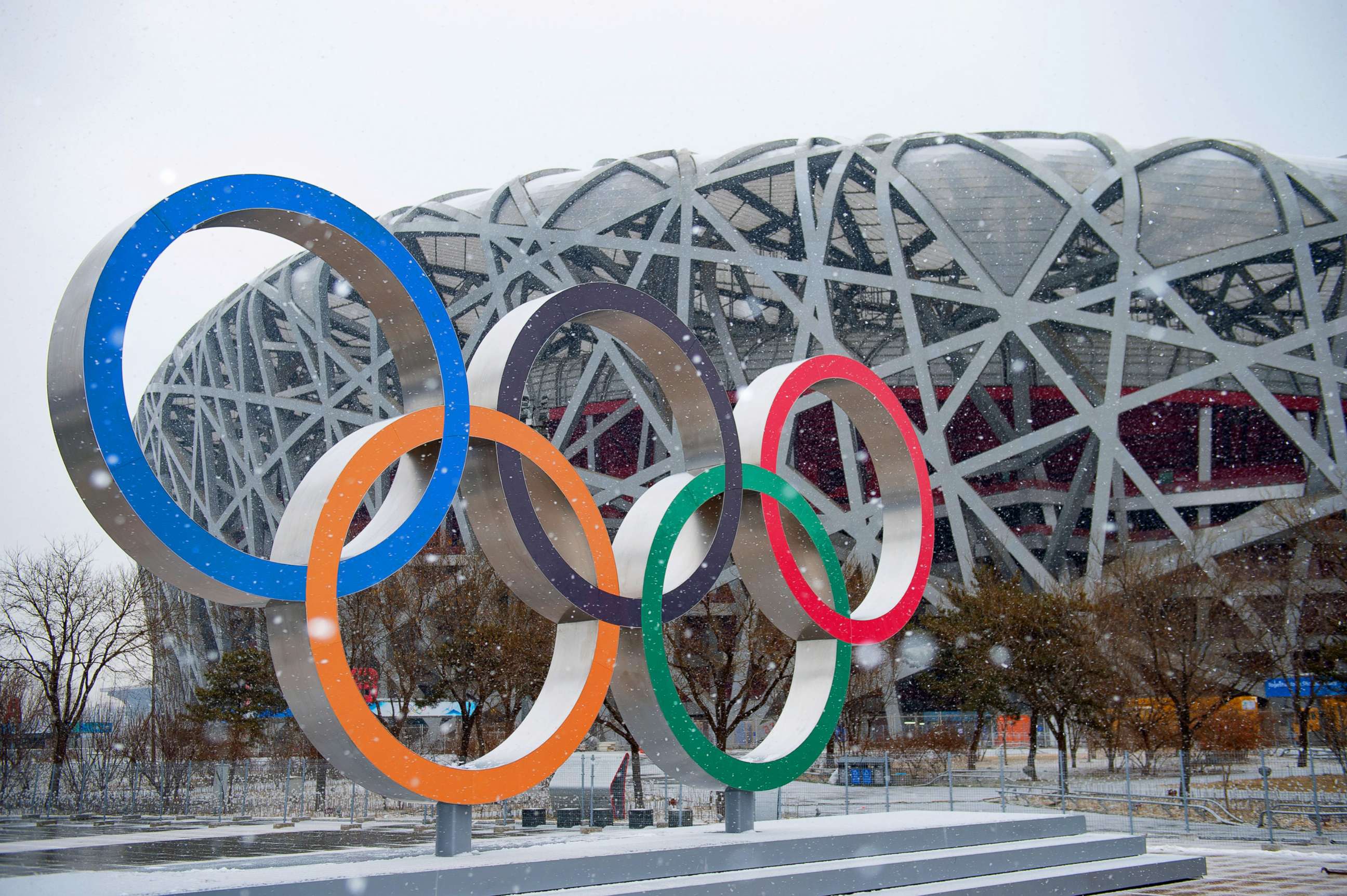Why US, other nations are holding diplomatic boycott of Beijing Games
Nations are protesting the government's human rights violations.
The 2022 Winter Olympic opening ceremonies will be dotted with empty seats as some major world VIPs skip the festivities in protest against the Chinese government's human rights violations.
In December, White House press secretary Jen Psaki announced America wouldn’t send an official delegation to the Beijing Games citing the government's mass detention camps and forced sterilization campaign against Uyghurs and other Muslim ethnic minorities in the country's western province.
High-ranking officials often attend Olympic Games' opening ceremonies, including presidents, vice presidents, secretaries of state, ambassadors and other officials. First lady Jill Biden attended the Tokyo Olympics as leader of the U.S. delegation.
Human rights activists around the globe have called for athletes and leaders to boycott the Games because of the government's policies.
"As the president has told President Xi [Jinping], standing up for human rights is in the DNA of Americans. We have a fundamental commitment to promoting human rights," Psaki told reporters on Dec. 6.

The United States' move, however, stopped short of prohibiting athletes from competing.
"The athletes on Team USA have our full support, we will be behind them 100% as we cheer them on from home," Psaki said.
Liu Pengyu, a spokesperson for the Chinese Embassy in Washington, D.C., tweeted out a response to the Biden administration shortly after its announcement claiming they "are doing so for their own political interests and posturing."

In 1980, Team USA boycotted the Summer Olympic Games in Moscow to protest Russia's invasion of Afghanistan. Russian, in turn, boycotted the following Summer Olympics in Los Angeles.
In 2014, top U.S. officials didn't attend the Winter Games in Sochi, Russia, in protest of Russia's policies of discrimination against its LGTBQ population.
Russia criticized the U.S. diplomatic boycott in Beijing, with Kremlin spokesperson Dmitry Peskov telling reporters in December, "The Olympic Games should be free of politics."
Other countries join in
Several major nations have joined the U.S. in its diplomatic boycott of the Games.
One day after the U.S. announced its plans, Australian Prime Minister Scott Morrison said he would not send an official diplomatic representative to the Games, also citing the Chinese government's human rights violations.

On Dec. 8, the United Kingdom and Canada joined the diplomatic boycott.
The Japanese government said it wouldn't send a delegation to the Games but hasn't declared a boycott, as of January.
By the end of January, several other European countries joined in the diplomatic boycott, including Estonia, Latvia, Sweden, the Netherlands and Denmark.



